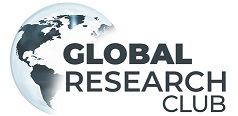اسلامی ریاست کے بین الاقوامی تعلقات کی ترجیحات
International Relations Priorities of an Islamic State
Keywords:
Islamic state, international relations, equality, peace, humanityAbstract
Islam is the religion of nature and the religion of security and peace, which has united humanity on the basis of a particular belief and ideology without discrimination of color, race and region. This is where the rule of law, provision of justice and equality. It prefers goodwill and the purity of culture and civilization. In international relations, peace and happiness of humanity is also its first priority. The Islamic state builds equal relations with the world and the non-Muslims living in the same state and unites the world with the same ideology. It ensures to live a safe and peaceful life. The basis of living together is built on the same Islamic ideology and principles of faith. Under this principle, the establishment of the system of life is accepted. The foundation of nations is based on this Islamic principle. Under this theory, the Islamic state establishes relation with other countries. In this way, the Islamic state follows the principles of mercy and human dignity to Muslims and non-Muslims within the country. Besides this, Islam has provided even the principles of war, on the basis of which a distinction is made between a man of war and a man of peace. Islam has also given a code of conduct for the warrior and the prisoner. It has also given rules and regulations for dealing with the defeated nations. It teaches manners even to a barbarian man who considers everything to be permissible during war. The Islamic state, not only emphasizes brotherhood, equality, justice and peace within the country, but also wants the same for the whole world. In this article, we have discussed the priorities of the international relations of the Islamic state. It concludes that Islam establishes international relations on a human basis.
Downloads
Published
How to Cite
Issue
Section
License
Copyright (c) 2023 Dr. Muhammad Sher Rabana, Dr. Muhammad Nawaz

This work is licensed under a Creative Commons Attribution-ShareAlike 4.0 International License.





